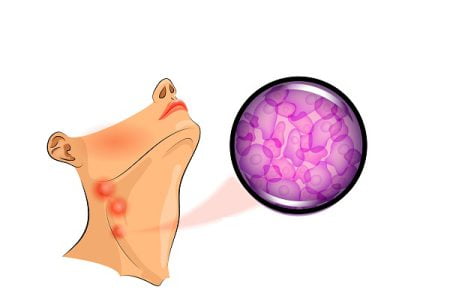Lymphoma: The Early Signs and What to Do
- Updated on: Nov 13, 2024
- 3 min Read
- Published on Nov 12, 2024

In many cases, the first sign of a serious health condition is something that the person themselves notices. A mark, an ache, something that is hard to ignore, any of these things can be what sends you to your doctor looking for advice. When it comes to cancer, the first sign is often a lump which turns out to be a tumor, but it is important to realize that there are numerous cancers where you will not have that kind of early indication, and may need to be on the lookout for something less obvious. This is particularly the case for blood cancers, such as leukemia and the one we are going to look at here – lymphoma.

Lymphoma comes in two primary forms: Hodgkin’s and non-Hodgkin’s lymphoma. It would not be especially accurate to say that either is more serious than the other – they are both harsh cancers which can be aggressive and need prompt intervention to allow the best chance of recovery. The Hodgkin’s form is more common and may be noticeable earlier due to the painful swelling of lymph nodes in the upper body. Below, we will look at the best ways to detect the condition early on and offer yourself the best chance of successful treatment.
How will you notice lymphoma?
As noted above, Hodgkin’s lymphoma often causes painful swelling in the lymph nodes, most commonly those in the upper body such as the armpits, neck or groin. This is often how people first notice there is a problem, and it is often most noticeable after a hot bath or drinking alcohol. Other people may first notice that they have a fever with no other obvious cause, and may notice that they are experiencing drenching night sweats; the important thing to note here is that there are plenty of reasons you may sweat in the night. Sweating due to lymphoma is particularly pronounced and not easily mistaken.
What other issues can it cause?

Some people will notice that they get full sooner when eating; a serving that would normally leave you feeling hungry will be too much to finish. Others notice an increase in nerve pain – while this may be mitigated by a nerve repair supplement, it tends to come back if the base cause is not dealt with. Bleeding and bruising may become more common and more pronounced where they do occur, and unexplained weight loss is also an early sign.
If any of the above are true of you, it is wise to check the armpits, groin, neck and stomach area for painful swellings. These may not occur until later on, but it is important to check for them because your doctor may advise or accelerate a certain course of action based on the symptoms you report, which may benefit your treatment.
How survivable is lymphoma?
If detected early and treated promptly, lymphoma can be highly survivable, with five-year survival rates varying between 65% and 75% depending on the exact kind of lymphoma. That caveat – the “if” – in the first sentence is key. If you detect any potential signs of lymphoma, it is essential that you speak to a doctor as early as possible. The earlier any condition is detected, the greater the flexibility in treatment options, and the better the chance any of those options has of being successful. This is particularly the case in lymphoma, where the outcomes of treatment can be affected by weeks.
What can you expect if diagnosed?
If lymphoma is detected, then time is of the essence and you can expect a program of treatment to be begun almost instantly. The usual treatment will be chemotherapy, aimed at eliminating the compromised cells in the body. There may be additional treatments depending on what doctors feel is possible, but the key is to eliminate all signs of lymphoma and drive it into remission. Once this has been achieved, there may be additional therapy designed to build up the immune system and keep the cancer from reoccurring. Again we stress – the sooner this treatment begins, the better its chances of working.
Lymphoma is a diagnosis that disturbs a lot of people, and with good reason – it is an aggressive condition and not always survivable. However, if you are aware of the signs and take prompt action, it can be driven away and stay away for good. Be aware of the risks and ask your doctor if you have any concerns that something is being missed – it’s your health and you shouldn’t be afraid to advocate for yourself.












